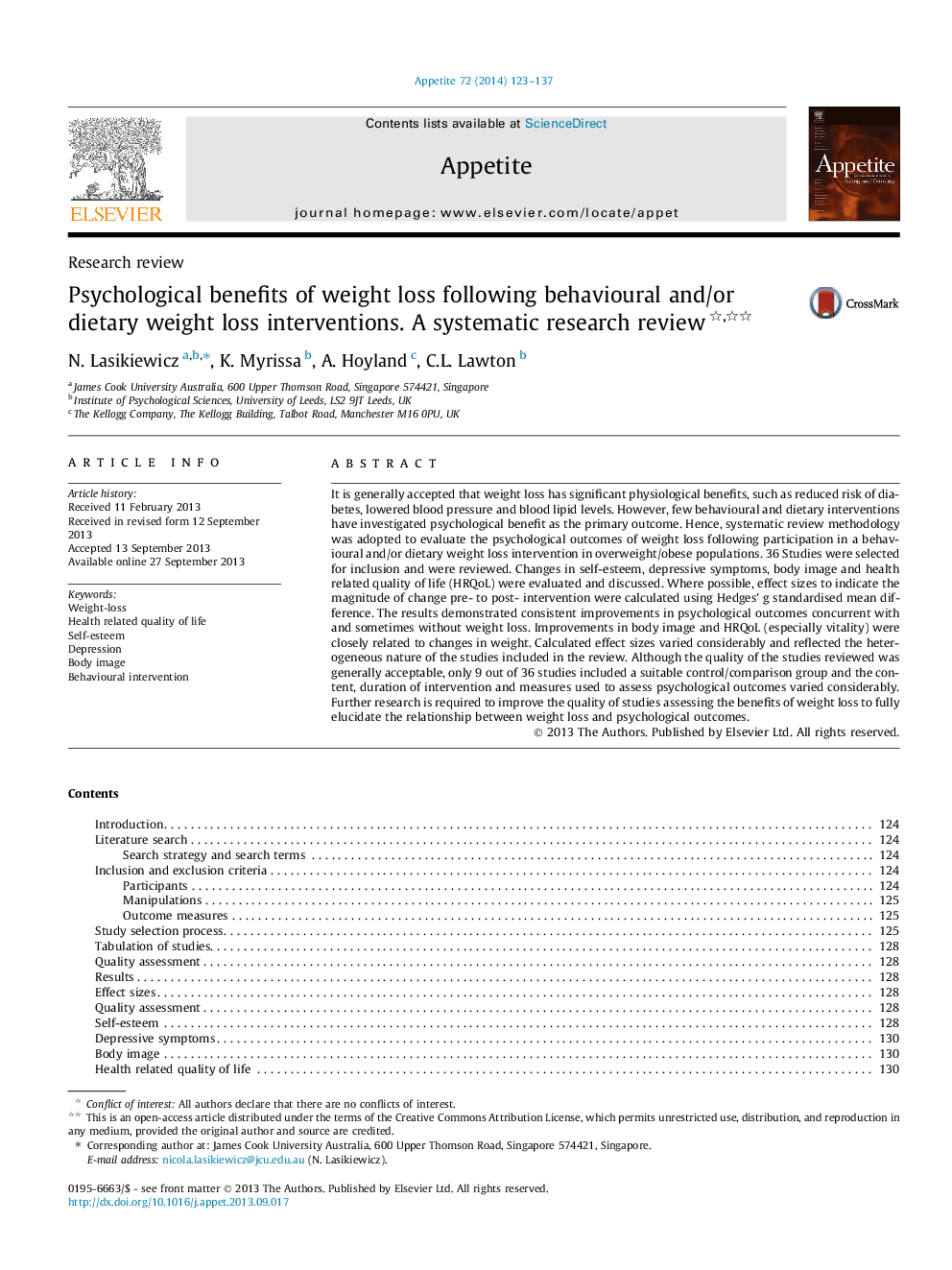| Article ID | Journal | Published Year | Pages | File Type |
|---|---|---|---|---|
| 7310455 | Appetite | 2014 | 15 Pages |
Abstract
It is generally accepted that weight loss has significant physiological benefits, such as reduced risk of diabetes, lowered blood pressure and blood lipid levels. However, few behavioural and dietary interventions have investigated psychological benefit as the primary outcome. Hence, systematic review methodology was adopted to evaluate the psychological outcomes of weight loss following participation in a behavioural and/or dietary weight loss intervention in overweight/obese populations. 36 Studies were selected for inclusion and were reviewed. Changes in self-esteem, depressive symptoms, body image and health related quality of life (HRQoL) were evaluated and discussed. Where possible, effect sizes to indicate the magnitude of change pre- to post- intervention were calculated using Hedges' g standardised mean difference. The results demonstrated consistent improvements in psychological outcomes concurrent with and sometimes without weight loss. Improvements in body image and HRQoL (especially vitality) were closely related to changes in weight. Calculated effect sizes varied considerably and reflected the heterogeneous nature of the studies included in the review. Although the quality of the studies reviewed was generally acceptable, only 9 out of 36 studies included a suitable control/comparison group and the content, duration of intervention and measures used to assess psychological outcomes varied considerably. Further research is required to improve the quality of studies assessing the benefits of weight loss to fully elucidate the relationship between weight loss and psychological outcomes.
Keywords
Related Topics
Life Sciences
Agricultural and Biological Sciences
Food Science
Authors
N. Lasikiewicz, K. Myrissa, A. Hoyland, C.L. Lawton,
